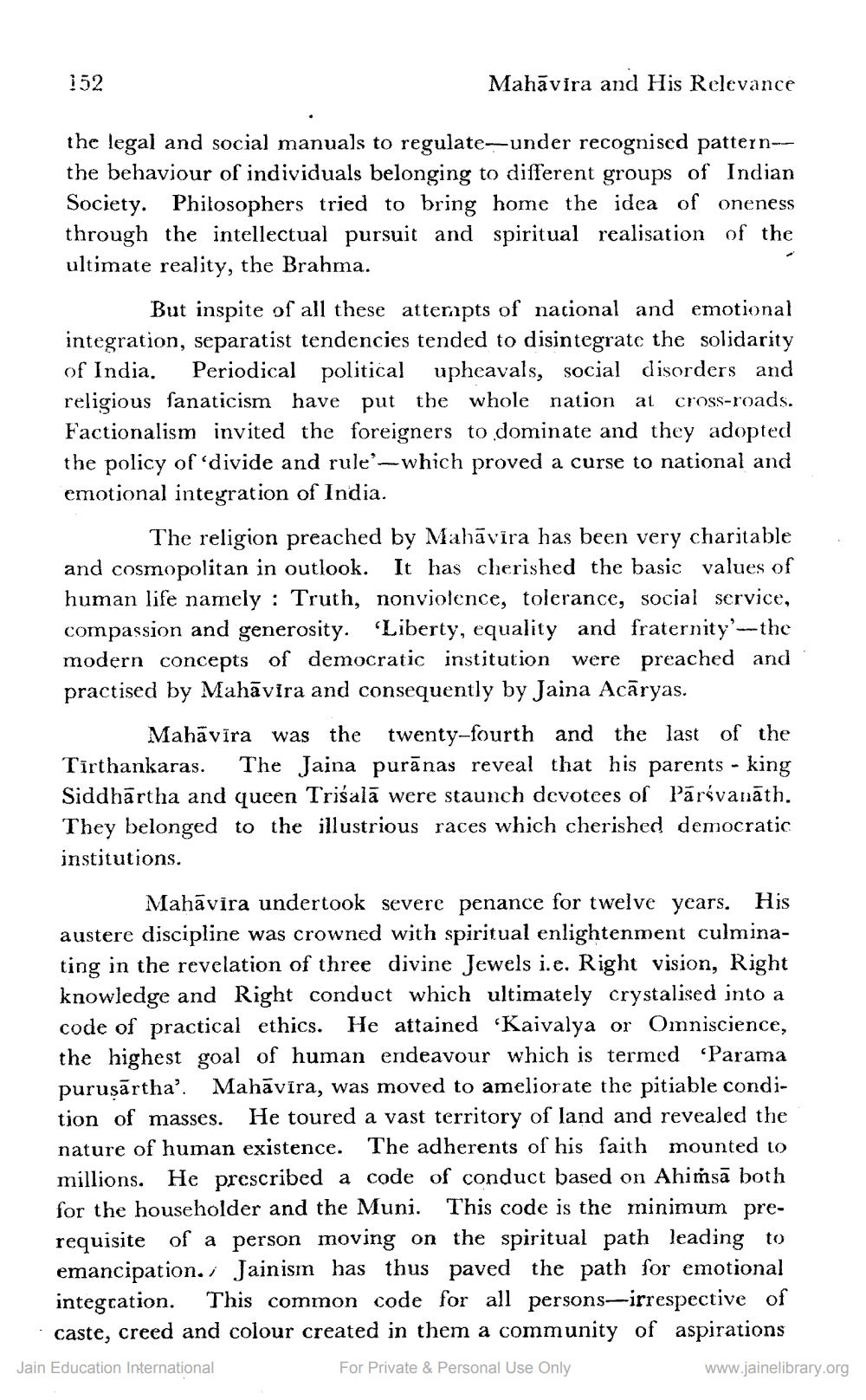________________
152
Mahavira and His Relevance
the legal and social manuals to regulate-under recognised pattern-the behaviour of individuals belonging to different groups of Indian Society. Philosophers tried to bring home the idea of oneness through the intellectual pursuit and spiritual realisation of the ultimate reality, the Brahma.
But inspite of all these attempts of national and emotional integration, separatist tendencies tended to disintegrate the solidarity of India. Periodical political upheavals, social disorders and religious fanaticism have put the whole nation al cross-roads. Factionalism invited the foreigners to dominate and they adopted the policy of 'divide and rule'-which proved a curse to national and emotional integration of India.
The religion preached by Mahāvīra has been very charitable and cosmopolitan in outlook. It has cherished the basic values of human life namely Truth, nonviolence, tolerance, social service, compassion and generosity. Liberty, equality and fraternity'--the modern concepts of democratic institution were preached and practised by Mahāvira and consequently by Jaina Acāryas.
Mahavira was the twenty-fourth and the last of the Tirthankaras. The Jaina purānas reveal that his parents - king Siddhartha and queen Trisalā were staunch devotees of Parsvanath. They belonged to the illustrious races which cherished democratic institutions.
Mahavira undertook severe penance for twelve years. His austere discipline was crowned with spiritual enlightenment culminating in the revelation of three divine Jewels i.e. Right vision, Right knowledge and Right conduct which ultimately crystalised into a code of practical ethics. He attained 'Kaivalya or Omniscience, the highest goal of human endeavour which is termed 'Parama puruṣārtha'. Mahāvīra, was moved to ameliorate the pitiable condition of masses. He toured a vast territory of land and revealed the nature of human existence. The adherents of his faith mounted to millions. He prescribed a code of conduct based on Ahimsa both for the householder and the Muni. This code is the minimum prerequisite of a person moving on the spiritual path leading to emancipation. Jainism has thus paved the path for emotional integration. This common code for all persons-irrespective of caste, creed and colour created in them a community of aspirations
Jain Education International
For Private & Personal Use Only
www.jainelibrary.org




